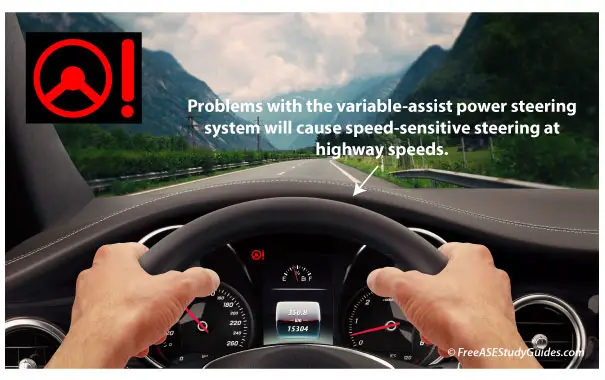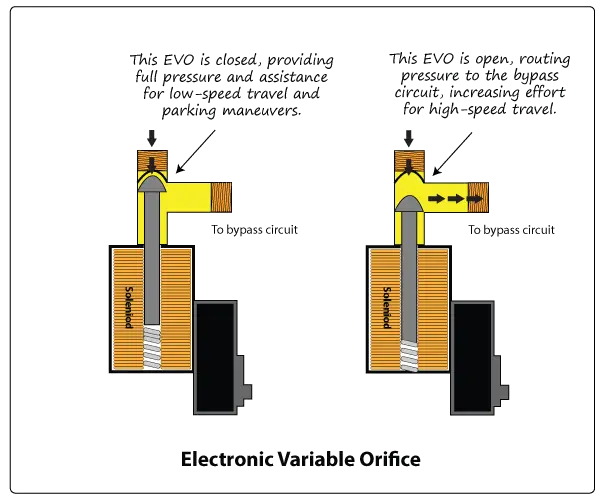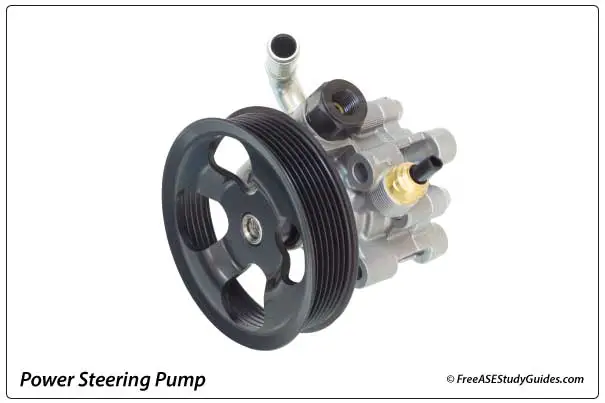Variable Assist Steering Systems

Variable assist steering systems are greatly reliant on vehicle speed. They control flow, allowing full pressure while parking and reducing pressure at highway speeds. They give the driver a tighter feel of the road at higher speeds while still providing full assistance during parking maneuvers and traveling slowly.

If the steering feels sloppy at highway speeds, the variable orifice is not functioning, not restricting hydraulic pressure. Also, the orifice can become clogged, resulting in hard steering and less assistance during parking maneuvers.

There are different variable-rate steering systems; check the service manual before proceeding. Typically, the EVO actuator is NC or normally closed, blocking pressure from the bypass circuit and allowing full system pressure.
The control module uses PWM pulse width modulation to open the actuator/valve, dropping pressure at higher speeds. Disconnecting the actuator will provide full pressure.

This system differs from the standard flow control valve that regulates pressure in a standard power steering system to prevent overpressure and damage to the system. A flow control valve provides a regulated pressure but does not provide variable pressure, as an EVO does.